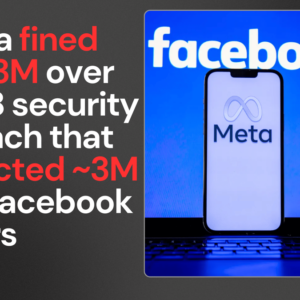The U.S. Department of Justice (DOJ) is making headlines by suggesting that Google should sell its popular web browser, Chrome. This bold move stems from concerns about Google’s dominance in the online market and how it affects competition. Let’s dive into what this means, why it’s happening, and who stands to gain or lose.
Why Does the DOJ Want Google to Sell Chrome?
The DOJ’s recommendation to sell Chrome is rooted in serious concerns about market dominance and unfair competitive practices.
- Monopoly Concerns: A recent court ruling found that Google has been illegally monopolizing the search market. This means they have made it very hard for other companies to compete effectively, especially in search engines.
- Data Collection and Privacy Issues: Chrome is not just a browser it collects a lot of user data, which Google uses to enhance its advertising business. Critics argue this data collection gives Google an unfair advantage over competitors, making it difficult for new companies to enter the market.
- Self-Promotion: Google often promotes its own services through Chrome, which can stifle competition. For example, when you use Chrome to search for something, it automatically uses Google Search, making it less likely that you will choose another search engine.
Who Would Benefit If Chrome Is Sold?
If the DOJ’s proposal goes through, several groups could benefit:
- Users: More competition could lead to better privacy features and more choices in browsers. Users might find alternatives that better suit their needs.
- Competitors: Other browser developers like Mozilla (Firefox) or Microsoft (Edge) could gain users who are looking for alternatives to Chrome. This could help them innovate and improve their products.
- Advertisers: With less control over the market, advertisers would have more options for placing their ads. This could lead to better prices and more effective advertising strategies.
Does Google Engage in Self-Preferencing?
Analyze whether Google unfairly promotes its own services through Chrome, creating an anti-competitive environment and stifling fair competition in the tech ecosystem.
- Promoting Own Services: By making Google Search the default option on Chrome, Google ensures that users are directed toward its services rather than competitors. This behavior raises questions about fairness in the digital marketplace.
- Impact on Innovation: When one company controls a significant portion of a market, it can slow down innovation. If new browsers can’t compete effectively with Chrome, we might miss out on exciting new technologies or features.
Real-World Examples and Insights
Consider the case of Netscape, which was once a leader in web browsing but struggled against Internet Explorer due to Microsoft’s dominance. Similarly, if Chrome remains under Google’s control without any changes, smaller players might never get a chance to shine.
The DOJ’s actions echo historical antitrust cases like that of Microsoft in the early 2000s. Back then, regulators took steps to break up Microsoft’s monopoly on operating systems and software applications, leading to a more competitive environment.
The Bigger Picture: Regulating Big Tech
The DOJ’s push against Google signals a shift in how big tech companies are regulated:
- Balancing Competition: The goal is to create a fair playing field where all companies can compete based on their merits rather than being overshadowed by one giant player.
- Future of Innovation: By breaking up monopolies, we might see a resurgence of innovation as smaller companies bring fresh ideas to the table without being crushed by larger competitors.
Conclusion
The DOJ’s suggestion for Google to sell Chrome is a significant step in addressing concerns about monopoly power in the tech industry. While this move could lead to greater competition and innovation, it also poses challenges for Google and its users. As we watch this situation unfold, it’s clear that the future of browsing and how we interact with technology could change dramatically.












